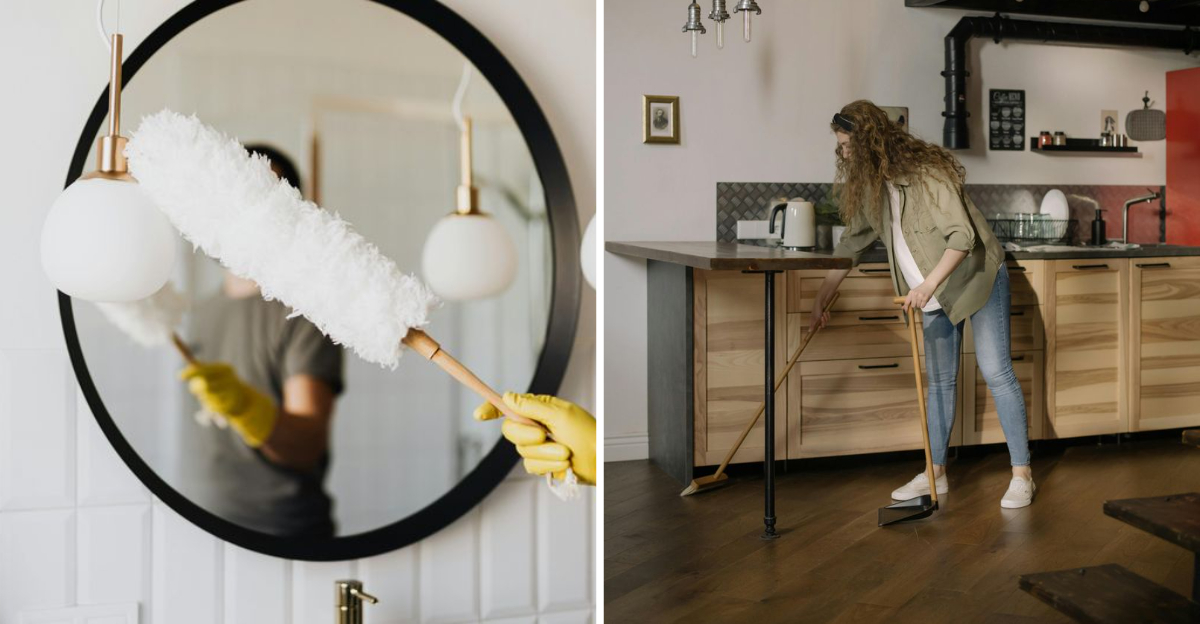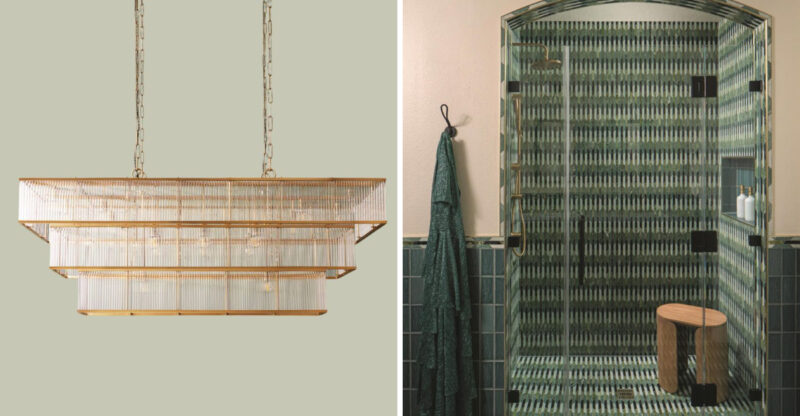7 Habits That Could Be Making Housekeeping Tougher Than It Needs To Be

Ever feel like no matter how much you clean, your home never stays tidy? Sometimes, small habits make housekeeping harder than it has to be.
By identifying and adjusting these common missteps, you can make daily cleaning easier and more effective.
Keep in mind that results may vary depending on your home’s size, layout, and routine, but these seven tips offer a great starting point for a more manageable home.
1. Leaving Clutter on Surfaces
Mail piles, random cups, and yesterday’s clothes scattered across tables and counters create instant visual chaos. When surfaces are already covered, you’ll likely skip dusting or wiping them down completely.
Try adopting the “one-touch rule” handle items only once before putting them away. Got junk mail? Toss it immediately rather than creating a “deal with later” pile. Finished with that coffee mug? Take it to the kitchen right away.
Clear surfaces are much faster to clean during your regular routine. Plus, the psychological benefit of walking into rooms with open, clean spaces creates motivation to maintain them. A quick 10-minute decluttering session each evening prevents overwhelming buildups.
2. Waiting Too Long to Do Laundry
Mountains of dirty clothes create a daunting challenge that nobody wants to tackle. When laundry piles reach overwhelming heights, you’re more likely to procrastinate even longer, creating a vicious cycle of avoidance.
Instead of waiting until every clean sock disappears, try processing smaller loads more frequently. A single load every other day feels manageable and prevents the weekend laundry marathon that ruins your free time.
Folding immediately after drying also prevents wrinkles and that dreaded “clean laundry chair” where clothes sit for days. Consider setting specific laundry days for different categories towels on Monday, clothes on Wednesday, sheets on Friday to create a sustainable rhythm.
3. Neglecting High-Traffic Areas
Entryways, hallways, and kitchen floors take the heaviest beating in any home. When these areas get grimy, they spread dirt throughout the rest of your house, making everything feel dirty faster.
Smart homeowners focus cleaning energy where it matters most. A quick daily sweep or vacuum of just these zones prevents dirt from traveling and makes the entire home feel cleaner with minimal effort.
Consider placing washable rugs or mats at entry points to trap dirt before it spreads. Keep a small handheld vacuum nearby for quick cleanups. Having cleaning supplies stored near high-traffic areas also encourages quick interventions before messes spread a small investment that pays off in reduced overall cleaning time.
4. Using Inefficient Cleaning Tools
That old mop that just pushes dirt around or the vacuum that’s lost most of its suction power are secretly making your cleaning sessions longer and less effective. Outdated or poorly maintained tools force you to clean the same areas repeatedly.
Quality cleaning tools might cost more upfront but save countless hours of frustration. A good vacuum with proper suction and filtration can clean in one pass what might take three passes with a worn-out model.
Microfiber cloths capture dust instead of spreading it, and modern spray mops eliminate the need for heavy buckets. Regularly clean your cleaning tools too! Washing vacuum filters, replacing mop heads, and disinfecting sponges ensures you’re not just spreading germs around during your cleaning efforts.
5. Overlooking Small Spills Immediately
That tiny coffee drip or splash of sauce might seem insignificant in the moment. Hours later, it’s hardened into a stubborn stain requiring scrubbing, special cleaners, and frustration.
Addressing spills immediately with a quick wipe prevents them from becoming permanent features. Keep cleaning supplies accessible in key areas under the kitchen sink, in bathroom cabinets, and near the dining table to make quick responses easy.
This habit extends beyond obvious spills. Toothpaste specks on bathroom counters, fingerprints on glass surfaces, and water spots on fixtures are all easier to clean when fresh. Teaching everyone in the household this “clean as you go” mentality dramatically reduces deep cleaning needs. Remember: ten seconds now often saves ten minutes later.
6. Not Establishing a Routine
Random, sporadic cleaning creates a cycle of overwhelming mess followed by exhausting cleaning marathons. Without a system, you’re constantly reacting to problems instead of preventing them.
A simple cleaning schedule breaks maintenance into manageable daily tasks. Monday bathrooms, Tuesday dusting, Wednesday vacuuming this approach prevents any single day from becoming overwhelming. Even 15 minutes of focused cleaning each day accumulates into a consistently clean home.
Don’t aim for perfection aim for consistency. A routine helps you track what’s been done and what needs attention next. It also creates muscle memory and efficiency as you repeat the same tasks regularly. The best part? Family members can easily join in when responsibilities are clearly defined and reasonable.
7. Skipping Regular Dusting
Dust accumulates silently until one day you notice it coating every surface in your home. By then, what could have been a quick five-minute task becomes a major project requiring special cleaners and multiple tools.
Dust doesn’t just look bad it contains allergens that affect your health and can damage electronics over time. A weekly quick dusting with a microfiber cloth prevents buildup and makes your regular cleaning routine much simpler.
Start from the top down (ceiling fans, shelves, then furniture) so falling dust doesn’t recontaminate cleaned surfaces. Focus especially on electronics, lampshades, and picture frames areas often overlooked but highly visible when dusty. Your home will feel fresher and cleaner with minimal effort.






